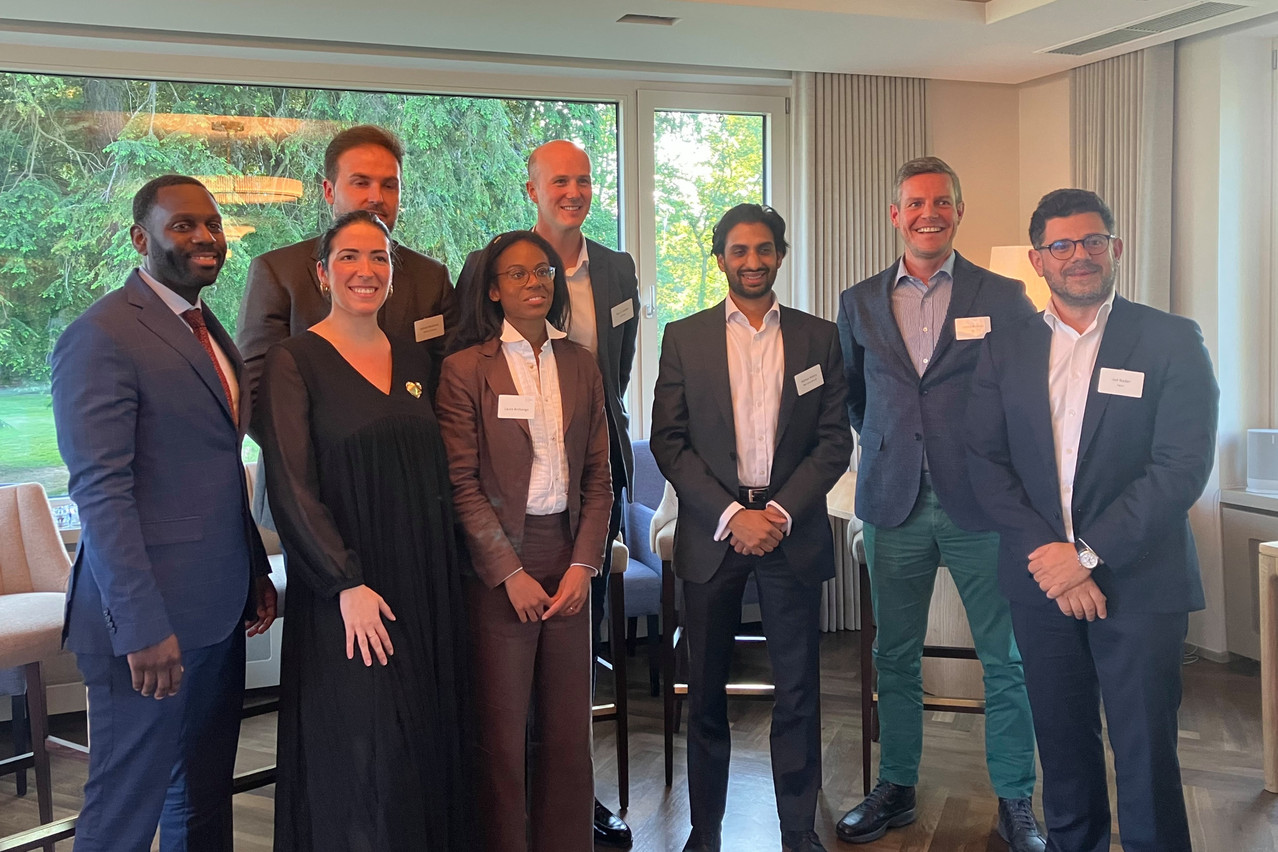The event, which took place at the Golf Club Grand-Ducal, was the first of its type here in the grand duchy. Fund Finance Association events often take place in cities like Miami or London, so it was the opportunity to position Luxembourg as a key centre of fund finance and drive momentum to continue developing the industry, Laura Archange, counsel at Arendt & Medernach told Delano. Archange was one of the organisers of the event, which saw over 100 attendees and featured a dialogue on diversity with IMS Luxembourg, a panel discussion with banking and asset management experts on fund finance in the grand duchy, the sophistication of the market and opportunities for Luxembourg, and a networking session.
Diversity is a fact; inclusion is a choice
Diversity is a mix of all the dimensions--visible and non-visible--that make up a person, said Priscilia Talbot, project manager at IMS Luxembourg. Talbot and Adnes Muhovic, counsel at Clifford Chance, held a discussion on the importance of diversity and inclusion to kick off the event.
Diversity, she added, is a fact. But inclusion is a choice. And it’s key to work on inclusion in the working world. Having an inclusive environment can help companies and organisations to attract and retain people, as well as make them more performant. With diverse teams, Talbot argued, you get different points of view, allowing people to be more creative and innovative. A , for instance, found that companies in the top quartile for gender diversity on executive teams were 25% more likely to have above-average profitability than companies in the fourth quartile. Diversity is not just “nice and fluffy,” it’s important for business.
There’s no “recipe” to duplicate when it comes to diversity and inclusion in companies, Talbot noted, but a good place to start is addressing unconscious or involuntary biases. This is when the brain sorts and stores information in “boxes,” then looks for common aspects. But this is dangerous as it can lead to stereotypes, prejudice and discrimination. To tackle this challenge, companies should train people, including managers and those who occupy top roles as they’re the ones who have the power to implement D&I policies. And although measuring the impact of these policies can be quite hard, setting objectives and key performance indicators can help. Ask people--in an anonymous manner and on a voluntary basis--how they feel, she added.
When it comes to key takeaways, Talbot highlighted three: be aware of your biases; ask questions and be curious; and spread awareness and talk about D&I.
Luxembourg market becoming more sophisticated, complex
The fund finance industry in Luxembourg is growing fast, said Lionel Bodson, head of the institutional banking division at Banque Internationale à Luxembourg during a panel discussion on the state of the market moderated by Arendt’s Archange and Jad Nader, partner at Ogier, but there are challenges. Successes include club deals with Luxembourg banks, while challenges include the “war for talent,” which, though not limited to fund finance, also presents an issue for the industry. Another is not having as deep of a liquidity pool when compared to places like London.
Basile Gerber, head of Luxembourg & portfolio at Kartesia, added that the ship seemed to be “going in the right direction.” A decade ago, the UK was key; now, Luxembourg has attracted its share. It’s important, he added, to have a clear, transparent framework to involve mis-alignment of interests between GPs and LPs when it comes to fund financing and net asset valuation (NAV) considerations.
Read also
The sector has evolved, agreed Nathan Mistry, director at Royal Bank of Scotland International, but there’s still a long way to go. Syndication is “inevitable,” he added. If you look at how large fund sizes are, that means credit facilities have to be relatively large as well, but liquidity is not tested or stretched in Luxembourg. With regulation like Basel IV, costs could also be rising and banks may start looking for new ways to make money.
The market has, over the years, become more sophisticated and complex, with, for example, securitisation in the EU regulation. From a bank’s perspective, this would depend on the size of the bank, while from an asset manager’s perspective, reporting requirements have to be taken into account.
Opportunities for Luxembourg do indeed lie ahead, said the panellists, and the perception of Luxembourg as being a back-office centre is shifting towards more front-office activities. Mistry noted that a number of US banks have come over the last few years, adding that he would “welcome more banks in Luxembourg,” both on the operational side but also for the “profile of the country.”
Evolving towards “bespoke” deals
After the event, Delano caught up with organiser Laura Archange, who started as an investment fund lawyer before pivoting to the fund finance, to hear her point of view on the evolution of and opportunities in fund finance. “Over the past decade, I have witnessed the industry evolve from primarily focusing on bridge financing (also called capital call or subscription facilities) to offering bespoke leverage deals, mostly in the form of NAV financings,” she told Delano. “I am proud to have contributed to this sophistication. Whether I am advising sponsors or lenders, my goal is always to help them establish financing that matches the specific needs of the fund platform.”
There are many opportunities to be seized in the grand duchy, she added. “One example is the event on Thursday, aimed at connecting fund finance specialists in Luxembourg. Another opportunity lies in marketing Luxembourg's long-standing legal advantages, such as its collateral framework. Additionally, being able to structure deals in more sophisticated ways to attract a variety of market players is crucial. One of the panellists mentioned this when we discussed ratings and securitisation, an area in which I have also developed expertise over the past decade,” Archange explained. “I am confident that the Luxembourg financial sector will continue to develop and expand the fund finance market.”










